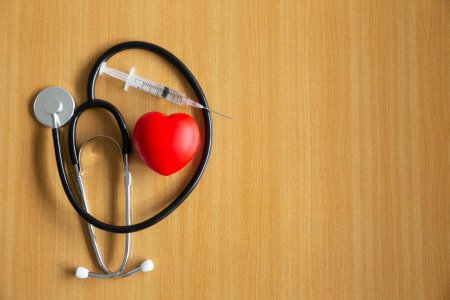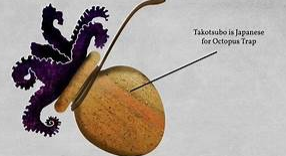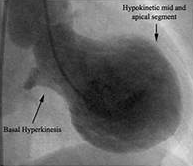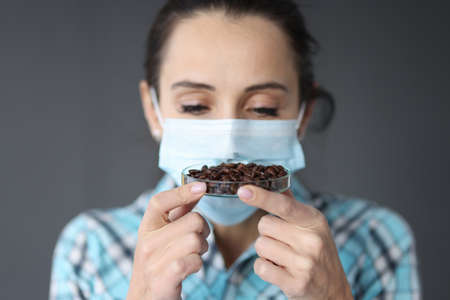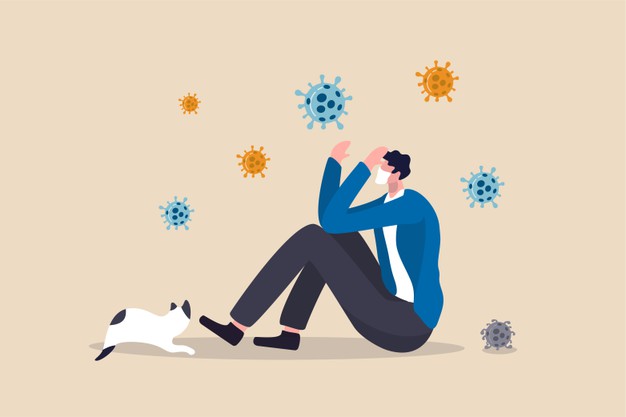
Blood Type and COVID-19
October 9, 2020
Knee dislocation
October 20, 2020Researchers Identify Increase in incidence of Stress Cardiomyopathy during COVID-19 Pandemic
Due to COVID-19 (corona virus disease 2019) pandemic people all over the world are stressed, and dealing with social, economic, psychological and emotional issues. Everybody is anxious about themselves or their family members and has experienced potential loneliness and isolation.
Studies have shown that stress affects overall health of an individual and increases risk of developing serious health issues such as depression, heart disease, anxiety etc.
Recently scientists conducted a study at two hospitals in Cleveland Clinic health system in Northeast Ohio to determine the incidence and outcomes of stress cardiomyopathy during COVID-19 pandemic compared with before the pandemic.
Stress cardiomyopathy or ‘Takotsubo cardiomyopathy,’ often titled as’ broken heart syndrome’ or apical ballooning syndrome, is a heart condition that is brought on by stress.
[ Cadiomyopathy: Cardio= heart, myo= muscle, pathy= disease. It is the disease of heart muscle that makes it harder for heart to pump blood to the rest of the body.]
It often affects women of post-menopausal age mostly between ages 58 years to 78 years.
Patients experiencing stress cardiomyopathy, encounter symptoms of heart attack such as chest pain, shortness of breath, fainting etc. The condition is usually triggered unpredictably by an emotionally or physically stressful event such as:
- A fierce argument
- Unexpected sudden loss of a loved one
- Domestic abuse
- Natural disasters
- Relationship conflicts
- Financial losses
- Acute medical illness, surgery, asthma attack
- A motor vehicle accident
- Head trauma
- Public speaking
- Intense fear or extreme fight
- Positive stressful events e.g. A surprise birthday party
It is now reported worldwide but was first identified in Japan in 1990. It was named ‘ Takotsubo’ which means ‘ octopus trap’.
This disorder is not caused by underlying heart disease and precise cause is not known. Researchers suggest that sudden release of stress chemicals e.g. adrenaline, affects or ‘stuns’ the heart muscle and also affects coronary blood vessels ( blood vessels responsible for supplying blood to heart muscles). These stress chemicals weakens the left ventricle, preventing the left ventricle from contracting effectively and thus preventing it from pumping oxygen-rich blood which is needed throughout the body.
[Heart has four chambers, the upper two chambers are left and right atria which receive blood from the body, whereas the lower two chambers are left and right ventricles which contract and pump blood to the other body parts of the body. The left ventricle is mainly responsible for pumping blood throughout the body].
An ultrasound image or other imaging techniques show abnormal movements in the wall of the left ventricle and ballooning of the lower part of the left ventricle (apex) is also seen. This bulging ventricle resembles a ‘tako-tsubo’, a pot used by Japanese fisher men to trap octopuses, hence given the name.
Patients of stress cardiomyopathy usually recover in a matter of days or weeks. They just need supportive care in a hospital setting until the heart function is restored. With early diagnosis, supportive therapy and regular follow-ups, patients recover and sustain no long term damage.
Close follow-ups may be necessary as the long term effects of stress cardiomyopathy or broken heart syndrome are still unknown.
However, sometimes patients may suffer life threatening complications such as heart failure, severe heart arrhythmias (irregular heart rhythm), and cardiogenic shock (a serious medical condition when heart cannot pump enough blood to vital organs such as brain, kidneys etc. and other body parts).
Death from stress cardiomyopathy is very rare.
To conduct the research cardiologists studied 258 patients coming into Cleveland Clinic and Cleveland Clinic Akron General with heart symptoms known as acute coronary syndrome or ACS (ACS is a set of signs and symptoms due to decrease blood flow in the coronary arteries, the blood vessels which supply blood to the heart muscles, such that part of the heart muscle is unable to function properly, common symptoms are chest pain, nausea, sweating etc.), between March 1 to April 30th and compared them with four control groups of ACS patients prior to the pandemic.
Scientists discovered through the studies that there was a significant increase in patients diagnosed with stress cardiomyopathy, reaching 7.8% when compared with pre-pandemic incidence of stress cardiomyopathy which was 1.7%.
Furthermore, patients with broken heart syndrome during COVID-19 pandemic had a longer length of hospital stay compared with those hospitalized in pre-pandemic period.
However, there was no significant difference in mortality (death rate) between the groups. Interestingly, all the patients diagnosed with stress cardiomyopathy were found to be negative for COVID-19, when they were tested for SARS-CoV-2 (Severe Acute Respiratory Syndrome Corona Virus 2).
Scientists comment that stress can have physical effects on bodies and our hearts, as evidenced by the increasing diagnosis of stress cardiomyopathy, and self-care during this difficult time is critical to our heart health and our overall health.
They further suggested that those who feel over whelmed by stress should reach out to health care professionals. Exercise, meditation and connecting with family and friends, while maintaining physical distance and safety measures can also help relieve anxiety.
Researchers demand for more studies to be conducted to find if this trend is also present elsewhere.
REFERENCE:
https://www.sciencedaily.com/releases/2020/07/200709141603
https://jamanetwork.com/journals/jamanetworkopen/fullarticle/2768093

